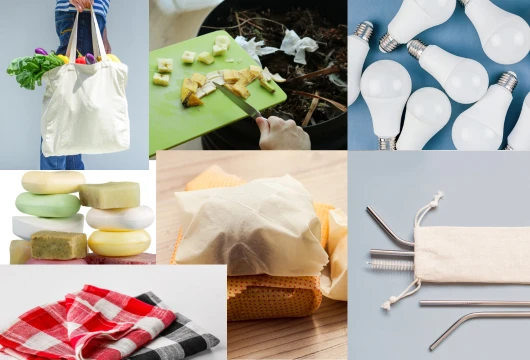Swaps to Make Your Household More Sustainable
Incorporating sustainable practices into your daily life is not only affordable but also straightforward. With a few thoughtful Swaps, you can significantly reduce your environmental footprint while staying within your budget. This guide explores seven budget-friendly household swaps that can help you lead a greener lifestyle.
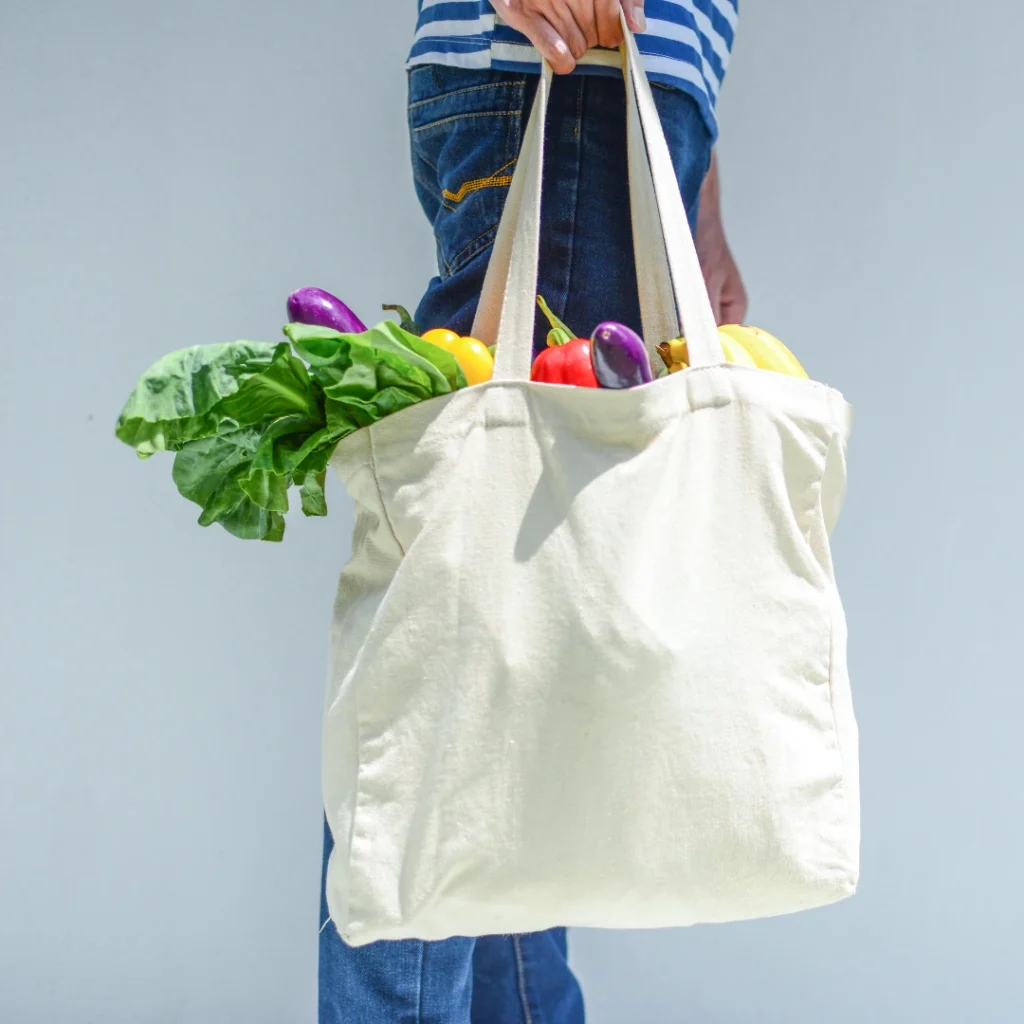
SWAP 1 : Reusable Grocery Bags Over Plastic Bags
Why Make the Swap?
Plastic bags are a significant environmental pollutant. They take hundreds of years to decompose, and many end up in oceans, harming marine life. Reusable grocery bags are a simple yet effective alternative.
Benefits:
- Cost-Effective: Most reusable bags cost just a few dollars and last years.
- Durable: Stronger and more reliable than single-use plastic bags.
- Eco-Friendly: Reduces plastic waste and pollution.
How to Implement?
Purchase a few reusable bags and keep them in your car or by the door. Remember to take them with you when shopping.
SWAP 2 : Beeswax Wraps Instead of Plastic Wrap
Why Make the Swap?
Plastic wrap is often used once and discarded, contributing to plastic pollution. Beeswax wraps are a reusable, biodegradable alternative that keeps food fresh without waste.
Benefits:
- Reusable: It lasts up to a year with proper care.
- Eco-Friendly: Made from natural cotton, beeswax, and jojoba oil.
- Versatile: Can be used for wrapping fruits, vegetables, sandwiches, and more.
How to Implement?
Start by purchasing a set of beeswax wraps. Use them to cover bowls, wrap sandwiches, or store produce. Wash them with cold water and mild soap after each use.
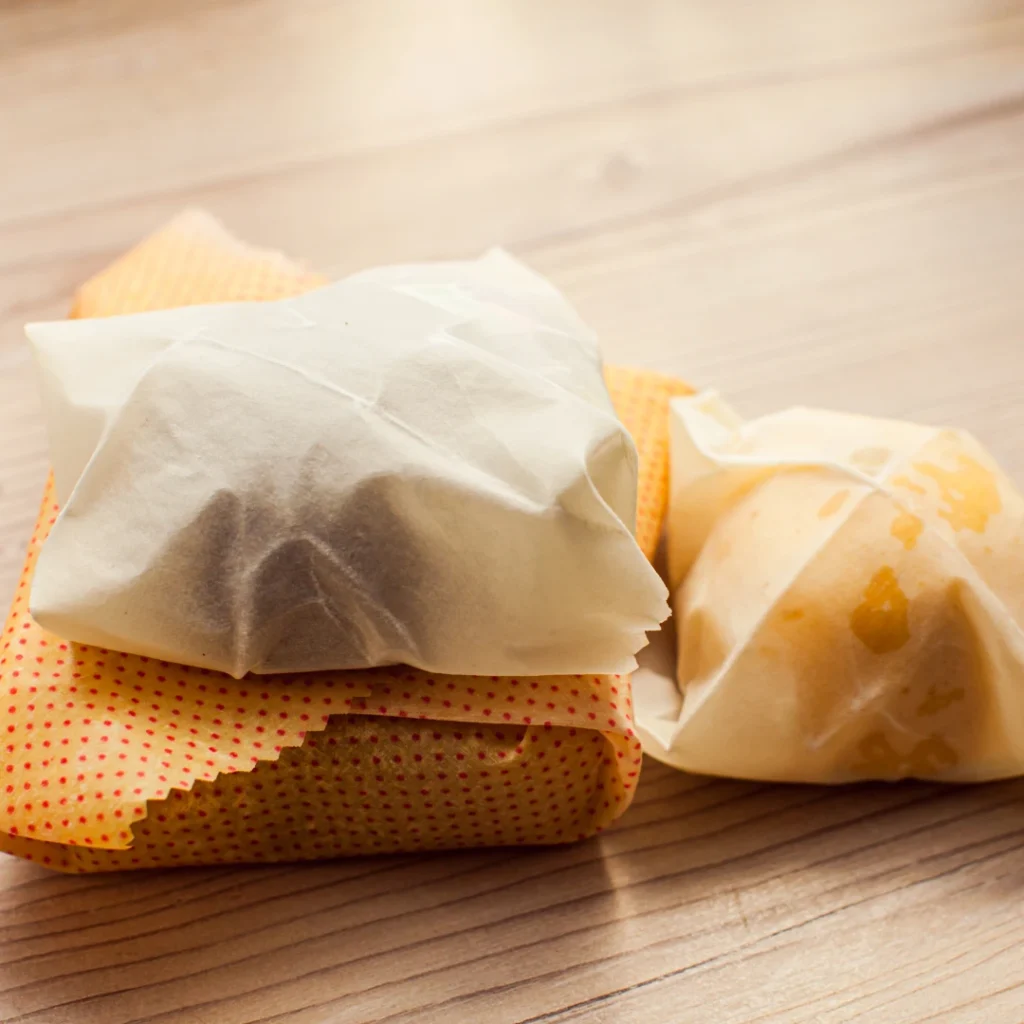
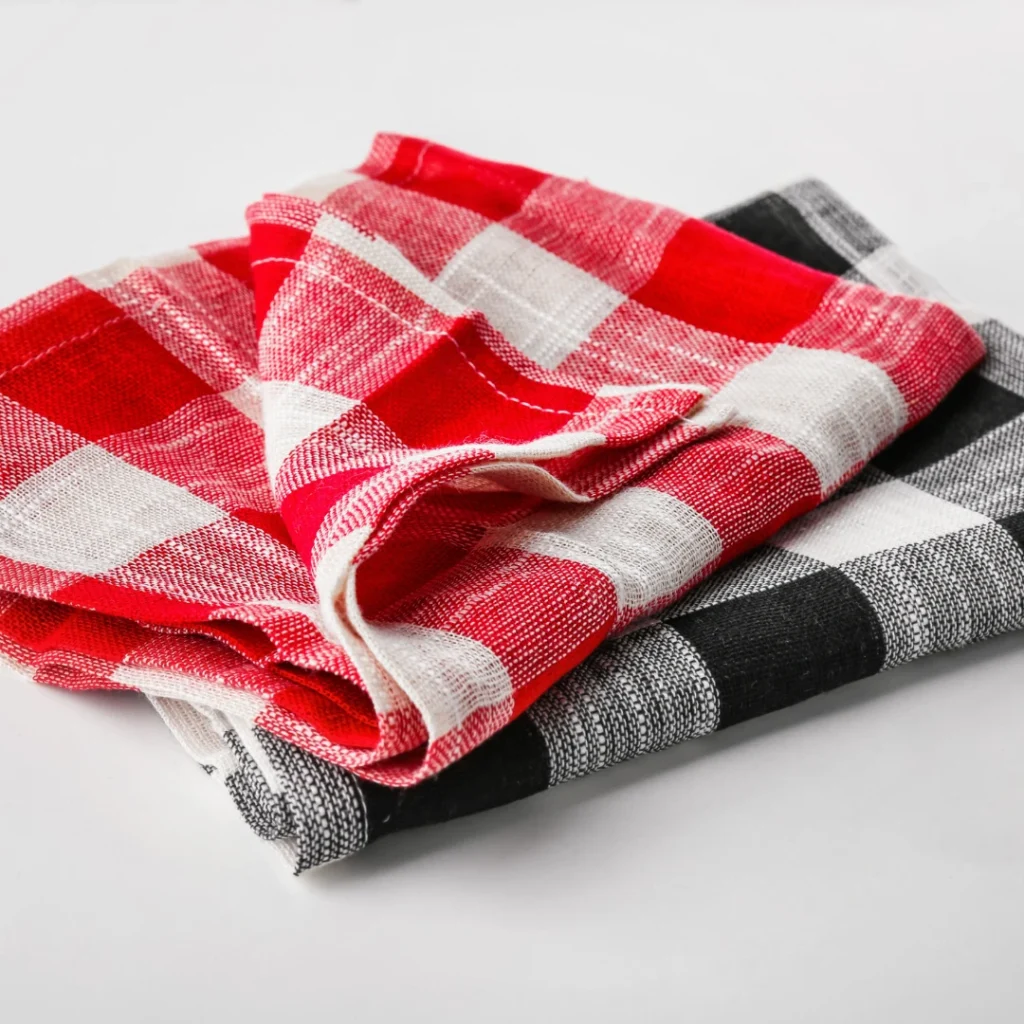
SWAP 3 : Cloth Towels Over Paper Towels
Why Make the Swap?
Paper towels are convenient but contribute significantly to deforestation and landfill waste. Cloth towels are a sustainable and cost-effective alternative.
Benefits:
- Reusable: Can be washed and reused multiple times.
- Cost-Effective: Saves money over time compared to constantly buying paper towels.
- Eco-Friendly: Reduces paper waste and the need for disposable products.
How to Implement?
Invest in a set of cloth towels or repurpose old clothes into rags. Use them for cleaning, drying hands, and other household tasks. Wash them regularly to keep them fresh and ready for use.
SWAP 4 : Stainless Steel Straws Instead of Plastic Straws
Why Make the Swap?
Plastic straws are a significant source of ocean pollution. Stainless steel straws are a durable, reusable alternative that helps reduce plastic waste.
Benefits:
- Durable: Can last for years with proper care.
- Easy to Clean: Most come with a cleaning brush for easy maintenance.
- Portable: Many come with carrying cases, making them easy to take on the go.
How to Implement?
Purchase a set of stainless steel straws and keep them in your kitchen, car, or bag. Use them at home and when dining out to avoid using plastic straws.
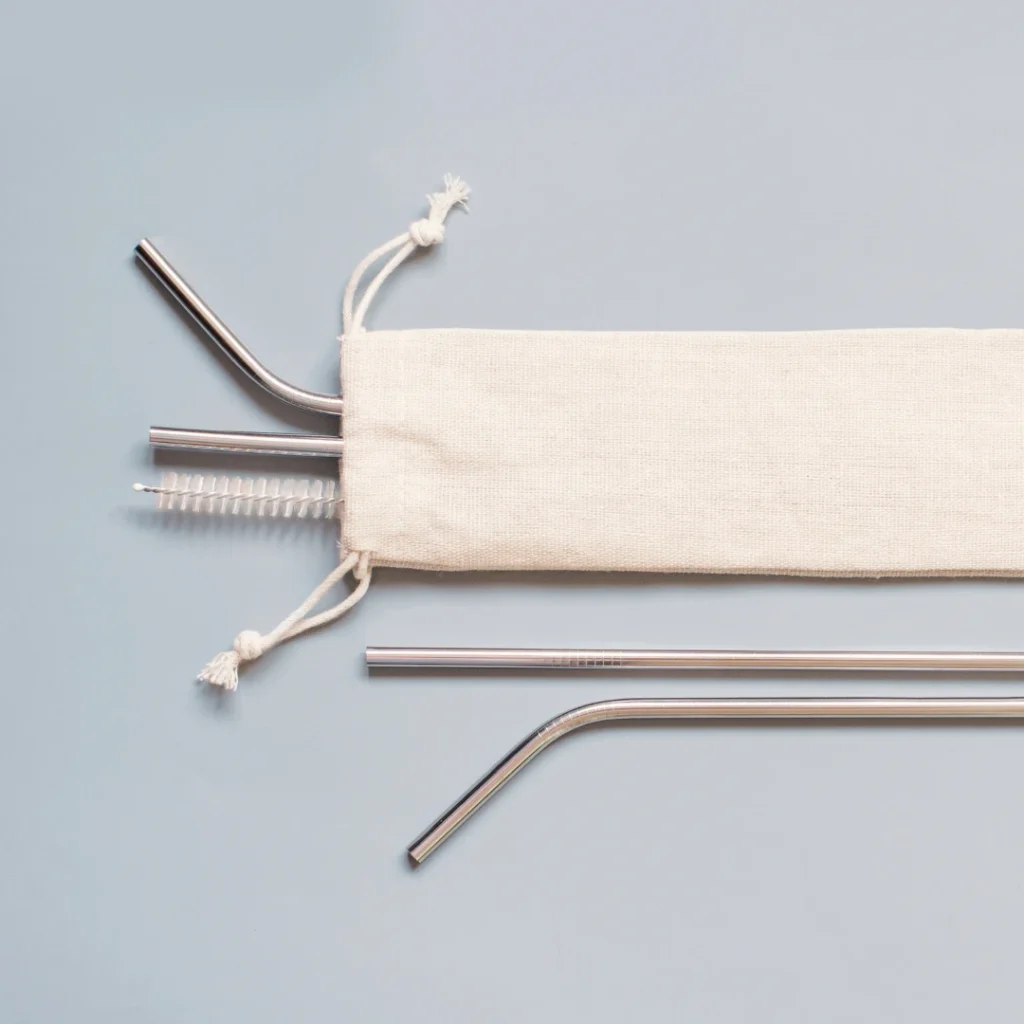
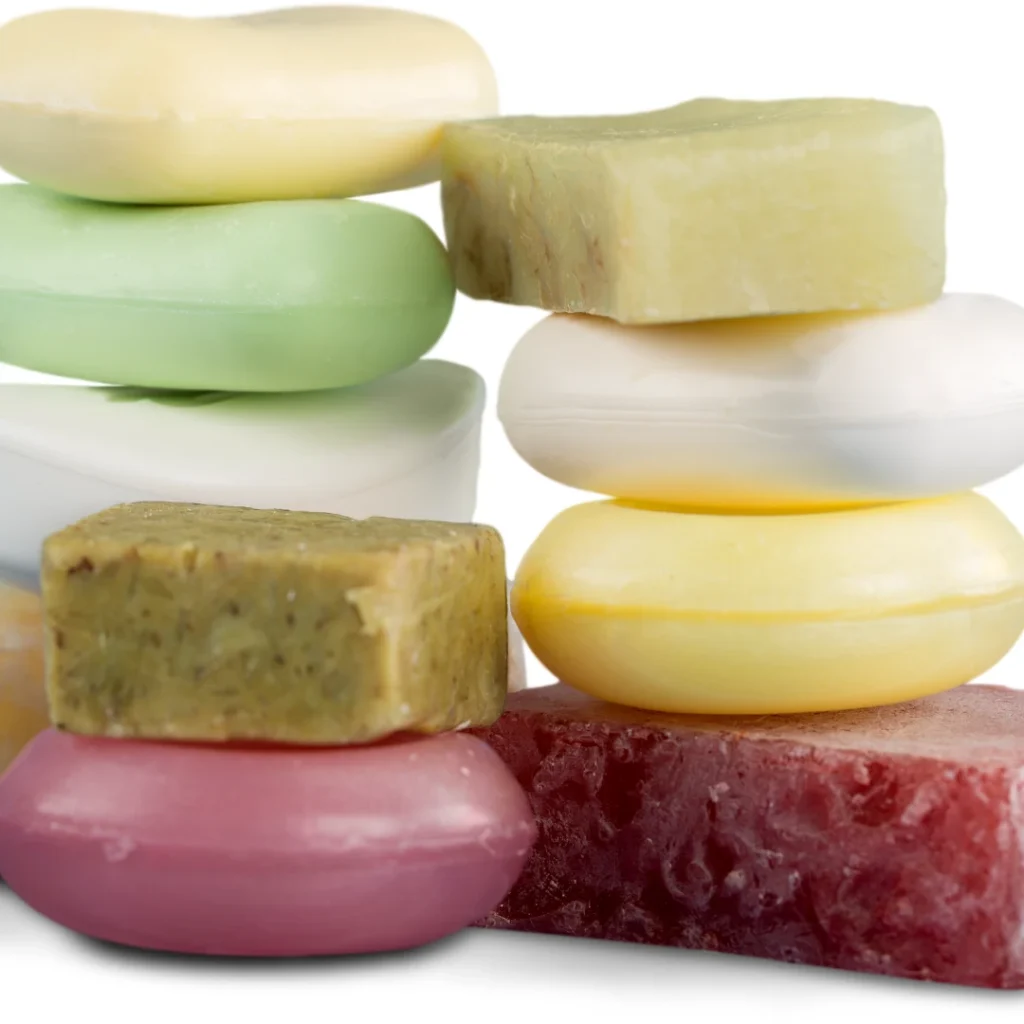
SWAP 5 : Bar Soap Over Liquid Soap
Why Make the Swap?
Liquid soap often comes in plastic bottles, contributing to plastic waste. Bar soap is a more sustainable option, especially those wrapped in paper or cardboard.
Benefits:
- Less Packaging: Reduces plastic waste.
- Long-Lasting: Typically lasts longer than liquid soap.
- Eco-Friendly Ingredients: Many bar soaps are made with natural, biodegradable ingredients.
How to Implement?
Please choose bar soaps made from natural ingredients and with minimal packaging. Place them in your bathroom and kitchen for handwashing and showering.
SWAP 6 : LED Bulbs Over Incandescent Bulbs
Why Make the Swap?
LED bulbs are more energy-efficient and have a longer lifespan than incandescent bulbs, making them a sustainable choice for lighting.
Benefits:
- Energy-Efficient: Uses up to 80% less energy than incandescent bulbs.
- Long-Lasting: Can last up to 25 times longer.
- Cost-Effective: Saves money on energy bills and replacement costs.
How to Implement?
Replace your existing incandescent bulbs with LED bulbs. Start with your home’s most frequently used lights for immediate energy savings.
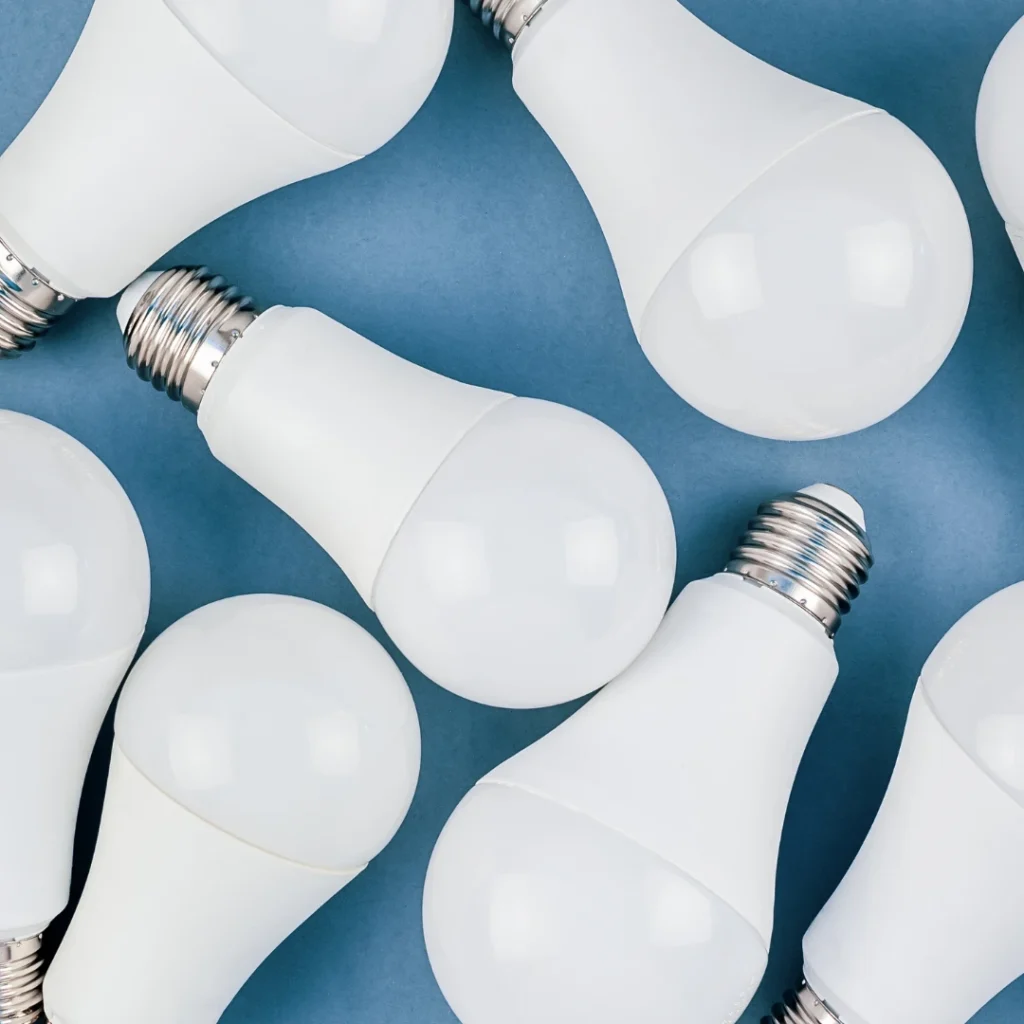
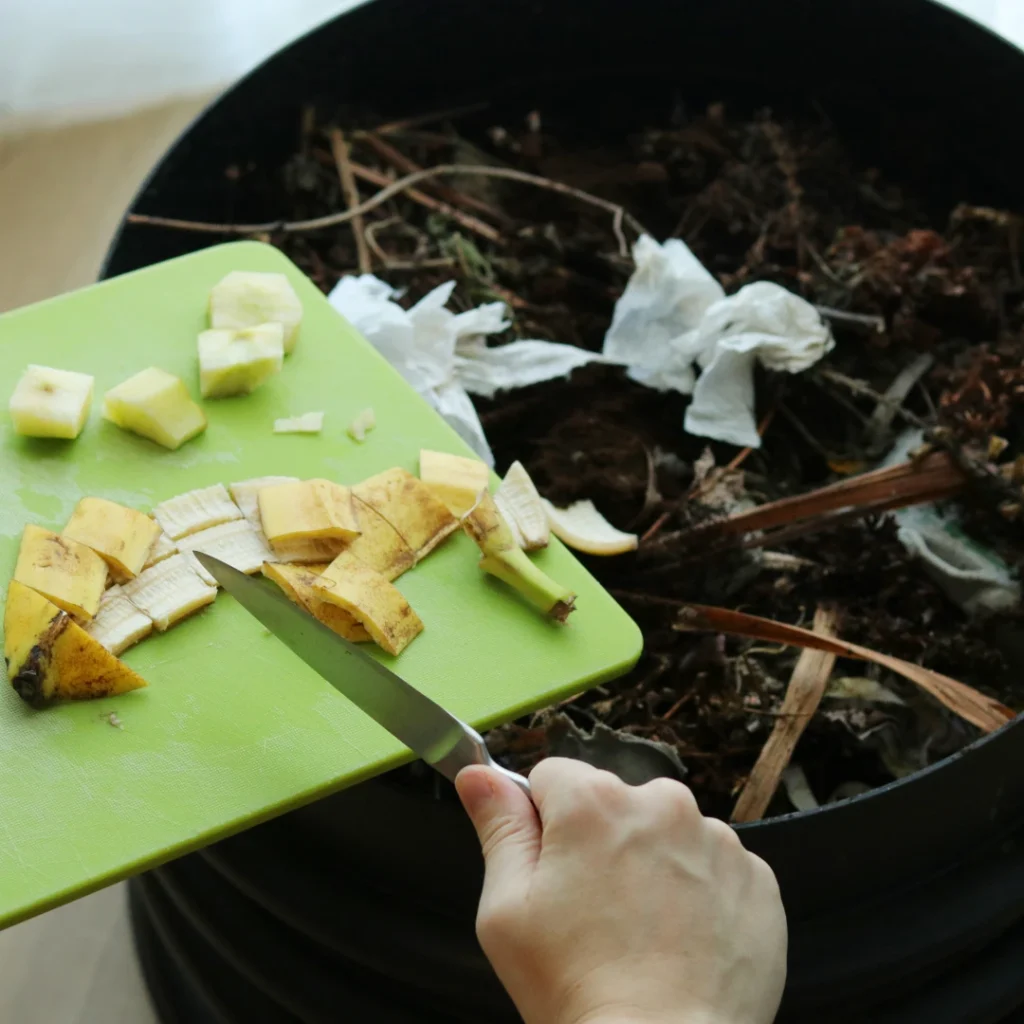
SWAP 7 : Compost Bin for Food Waste
Why Make the Swap?
Food waste in landfills produces methane, a potent greenhouse gas. Composting helps reduce landfill waste and creates nutrient-rich soil for gardening.
Benefits:
- Reduces Waste: Diverts food scraps from landfills.
- Enriches Soil: Creates compost that can be used to fertilize plants.
- Eco-Friendly: Reduces methane emissions from decomposing food in landfills.
How to Implement?
Start a compost bin in your backyard, or use a small indoor compost bin for kitchen scraps. Learn about what can and cannot be composted to ensure successful composting.
Small Changes, Big Impact
Making sustainable swaps in your household doesn’t have to be expensive or difficult. By adopting these budget-friendly alternatives, you can reduce your environmental footprint and contribute to a healthier planet. Start with one or two swaps and gradually incorporate more into your daily routine for a sustainable and eco-friendly lifestyle. Remember, these changes may seem small, but they have a significant long-term impact.
Take the first step towards a greener home today. Try one of these sustainable swaps and share your experience with friends and family to inspire others to make eco-friendly choices. Your journey towards a more sustainable lifestyle is not just about you, it’s about creating a community of like-minded individuals striving for a healthier planet.
For more inspiring Blogs, click here.
